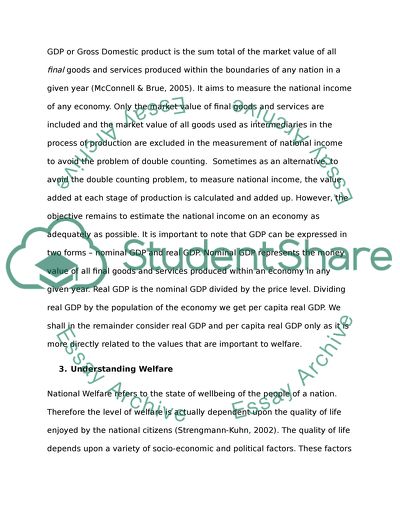Cite this document
(“1.Since Country A has a higher GDP than Country B then this must mean Essay - 1”, n.d.)
1.Since Country A has a higher GDP than Country B then this must mean Essay - 1. Retrieved from https://studentshare.org/miscellaneous/1549837-1since-country-a-has-a-higher-gdp-than-country-b-then-this-must-mean-the-residents-of-country-a-are-better-off-in-terms-of-economic-welfare-discuss
1.Since Country A has a higher GDP than Country B then this must mean Essay - 1. Retrieved from https://studentshare.org/miscellaneous/1549837-1since-country-a-has-a-higher-gdp-than-country-b-then-this-must-mean-the-residents-of-country-a-are-better-off-in-terms-of-economic-welfare-discuss
(1.Since Country A Has a Higher GDP Than Country B Then This Must Mean Essay - 1)
1.Since Country A Has a Higher GDP Than Country B Then This Must Mean Essay - 1. https://studentshare.org/miscellaneous/1549837-1since-country-a-has-a-higher-gdp-than-country-b-then-this-must-mean-the-residents-of-country-a-are-better-off-in-terms-of-economic-welfare-discuss.
1.Since Country A Has a Higher GDP Than Country B Then This Must Mean Essay - 1. https://studentshare.org/miscellaneous/1549837-1since-country-a-has-a-higher-gdp-than-country-b-then-this-must-mean-the-residents-of-country-a-are-better-off-in-terms-of-economic-welfare-discuss.
“1.Since Country A Has a Higher GDP Than Country B Then This Must Mean Essay - 1”, n.d. https://studentshare.org/miscellaneous/1549837-1since-country-a-has-a-higher-gdp-than-country-b-then-this-must-mean-the-residents-of-country-a-are-better-off-in-terms-of-economic-welfare-discuss.


